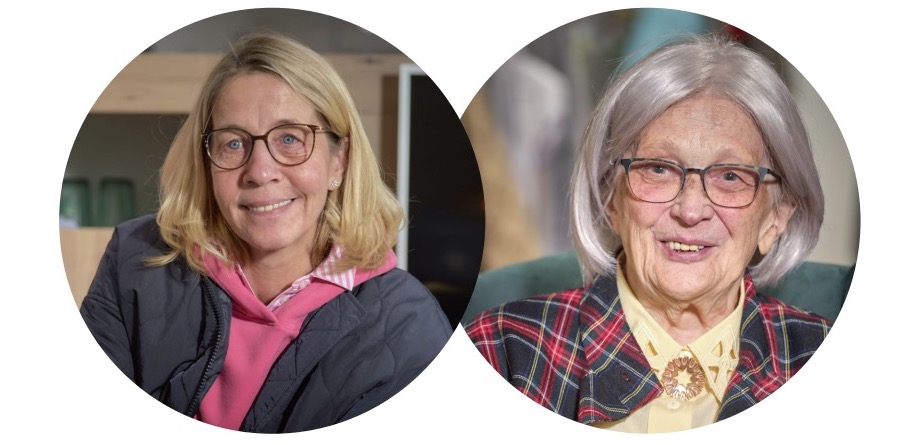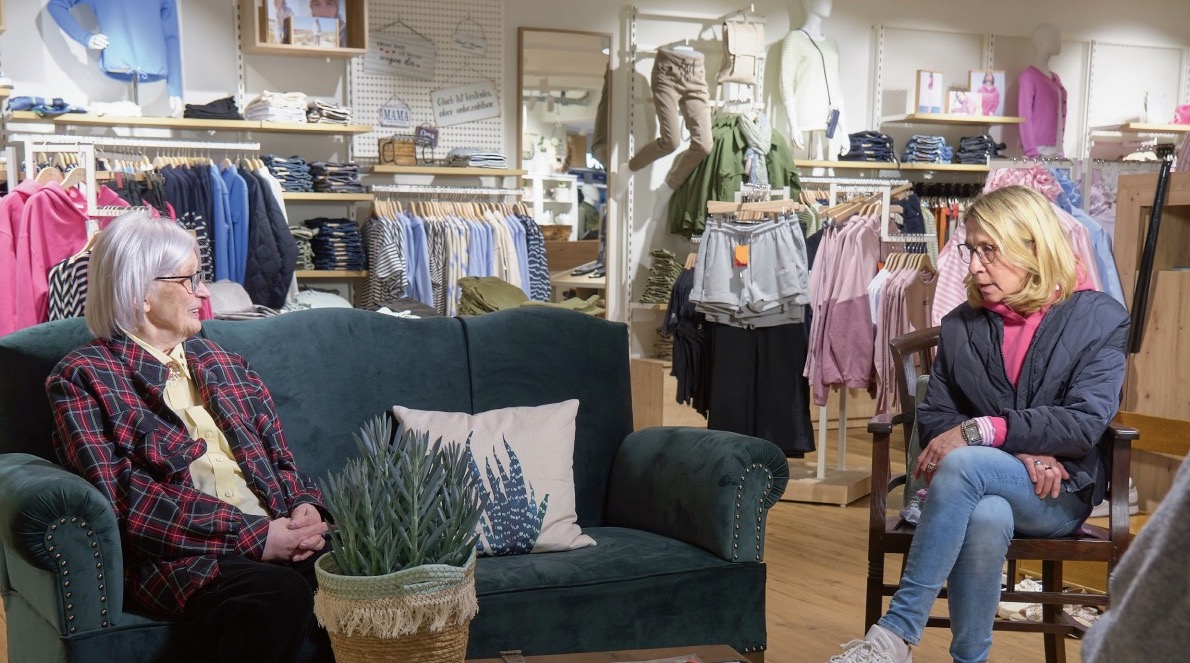“Luckily that’s out of fashion!”
Hardly any industry is as fast-paced as fashion. New cuts, new colors and new fabrics are trendy from one season to the next. Edith Kappest, who began her training as a retail clerk in 1950, met in the Schmallenberger Dorfkinder shop to exchange ideas with Irmgard Schulte, who has worked in retail on Weststraße in various shops since 1987 and has been part of the Schmallenberg Dorfkinder team since last year.
“Back then there weren’t as many professions to choose from as there are today, and I didn’t want to work in an office,” says Edith Kappest, explaining her career choice. She trained in a shop in Hilchenbach that sold not only fashion but also haberdashery. These included, for example, buttons, curtains or feathers for feather beds. The only thing the store didn’t stock were suits and men’s outerwear. In addition to selling, it was also the task of the apprentices to keep the shop in good shape. “We also had to clean, wax the floor and poke the stove,” the pensioner continues. There were also strict rules in the shop: when customers were in the shop, the employees had to use the initials among themselves and sitting down was also not permitted.
learned for life
No office job was an option for Irmgard Schulte either. “But I didn’t want to work in gastronomy either, because as a young rider I wanted to take the horses to tournaments at the weekend,” explains the woman from Oberkirchen. “So one day I went to Schmallenberg with my mother and that’s how I found my apprenticeship in a shoe shop.” During her training as a shoe saleswoman, she learned for life, even if the tone was a bit rougher at the time: “I think it’s for Both sides are nice, for the customers, but also for us shop assistants, if we know each other here in Schmallenberg.” That’s why she wants to work as a shop assistant on Weststrasse until she retires.
Over time, she then switched from shoes to clothing. The shop where she works now, Schmallenberger Dorfkinder at Weststrasse 9, also provides training. Irmgard Schulte thinks that not only the trainees benefit from the cooperation with the experienced colleagues: “Working with the ‘young people’ is also an advantage for us. In this way, the latest trends and technological developments do not pass us by.”
Many things have changed over the years. You can now use a pocket calculator instead of mental arithmetic, the purchase receipts no longer have to be filled out by hand and the delivery of the goods has also become easier. “Today we get everything brought straight to the shop,” says Irmgard Schulte. Edith Kappest, on the other hand, can share other memories: “We had to walk to the post office or the train station with the handcart and pick up the goods. There were also times when we ‘fine’ customers needed to bring goods home – even if it was just a bag of buttons. These were messenger services, which the apprentices usually had to take on. And alas, you didn’t ring the bell at the delivery entrance, but at the front door, then there was scolding!”

A specialist shop needs quality
Today you enter the shop, look around at your leisure or enjoy the expert advice. In the past, however, this was not easily possible. Most of the goods lay behind glass on the shelves, waiting for the salesperson to take them out for the customer to look at or try on.
Then as now, advice is an important factor in sales. “After all, that sets us apart from online trading,” says the saleswoman in the Schmallenberg village children’s shop. In addition to all the things that have changed, there are things that basically remain the way they were. “Even after 30 years in a rifle club, most men don’t know their collar size,” smile the saleswomen.
out of fashion
A piece of clothing that both agree, “fortunately is no longer in fashion”, is the corset. Edith Kappest has entertaining anecdotes in store, who once found a customer who had taken off more clothes than she should while ‘tying up’ in the dressing room. They are beautiful, vivid memories that put a smile on the pensioner’s face. Even if the apprenticeship years are not the master’s years, as the saying goes, you can feel how much she enjoyed her job. Irmgard Schulte’s enthusiasm is also noticeable. In a joint exchange, they move from one topic to the next. Her passion for fashion and her profession is timeless.
The conversation between the two women also shows which skills and character traits saleswomen should have: friendliness and respect in dealing with people. Every day you meet customers – old acquaintances, new people. You have to adjust to each one anew and always keep an overview.
–


